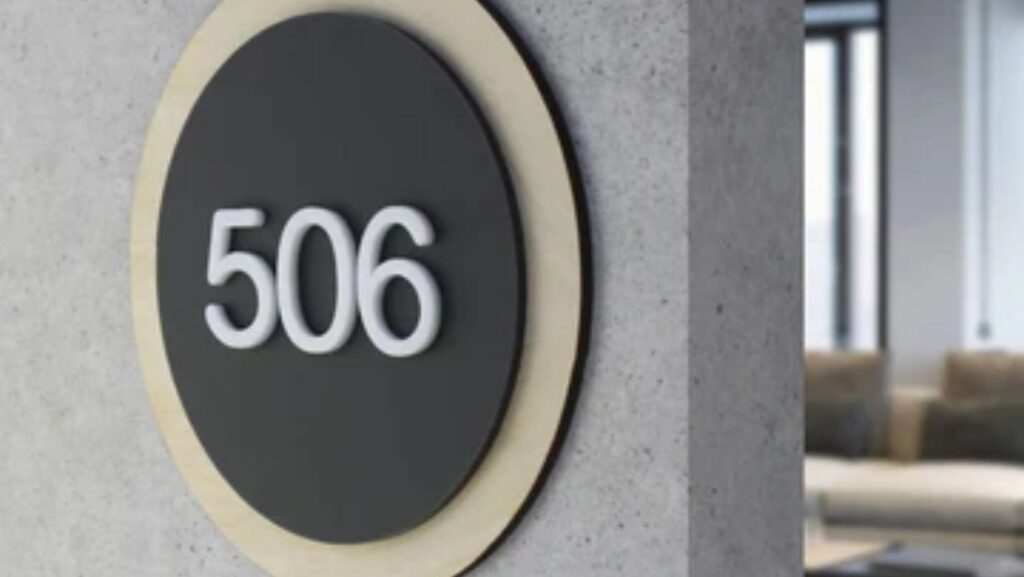
Door numbers are more than just a functional necessity; they are an essential element of building organisation, safety, and even aesthetics. Whether in residential, commercial, or public spaces, door numbers help people easily identify specific locations within a building. From apartments and offices to hospitals and hotels, door numbers play a crucial role in ensuring that individuals can quickly navigate the space and find their desired destination.

When it comes to buying door numbers — Bsign is the best option to consider. Take a look at their assortment and you will see why.
The Importance of Door Numbers
The primary function of door numbers is to provide clear identification. They allow residents, employees, visitors, and emergency personnel to locate rooms, apartments, or offices without confusion. For instance, in apartment complexes, clearly marked door numbers ensure that delivery personnel and guests can easily find the right unit. Similarly, in hotels or hospitals, room numbers help staff and visitors reach the appropriate rooms quickly.
Beyond navigation, door numbers are critical for safety and emergency purposes. In the event of an emergency, emergency responders need to be able to quickly identify specific rooms or apartments to ensure a swift and effective response. Without clear numbering, delays could occur, potentially putting lives at risk.
Materials and Design Options
When it comes to choosing door numbers, there are a variety of materials and design options to suit different needs and preferences. Here are a few common materials used for door numbers:
- Stainless Steel: Known for its durability and modern appearance, stainless steel is resistant to corrosion, making it ideal for both indoor and outdoor use.
- Acrylic: This versatile material can be customised with a range of colors and finishes, offering flexibility and style. It is lightweight and weather-resistant, making it suitable for both residential and commercial spaces.
- Wood: Often used in rustic or boutique settings, wooden door numbers provide a natural and warm aesthetic. They are ideal for creating a unique, personal touch in a home or small business.
In addition to material choices, door numbers come in a range of sizes and font styles. Larger numbers are often used in commercial spaces for greater visibility, while smaller, more discreet numbers may be used in residential homes. Modern design trends have also led to the creation of illuminated or backlit door numbers, which provide extra visibility at night or in low-light conditions.
Customisation and Branding
Custom door numbers allow businesses and property owners to enhance their branding and create a cohesive design throughout their space. For commercial properties, customised door numbers can reflect the brand’s personality by incorporating specific fonts, colors, or logos. For instance, a tech company might opt for sleek, modern door numbers with minimalist design, while a restaurant might choose more decorative or artistic numbers that align with their theme.
Custom door numbers are also an excellent opportunity for businesses to promote a professional and organised image. Clear, well-designed door numbers not only improve functionality but also make a positive impression on clients and visitors.
Placement and Visibility
Once the appropriate door numbers are chosen, proper placement is crucial. Door numbers should be positioned at eye level for easy visibility and should be well-lit, especially in hallways, stairwells, or outdoor entrances. In outdoor settings, reflective or illuminated numbers are often used to ensure visibility at night or in low-light conditions.

Contrast is also important — numbers should stand out clearly against their background. High-contrast color combinations, such as dark numbers on a light background or vice versa, improve readability from a distance.












